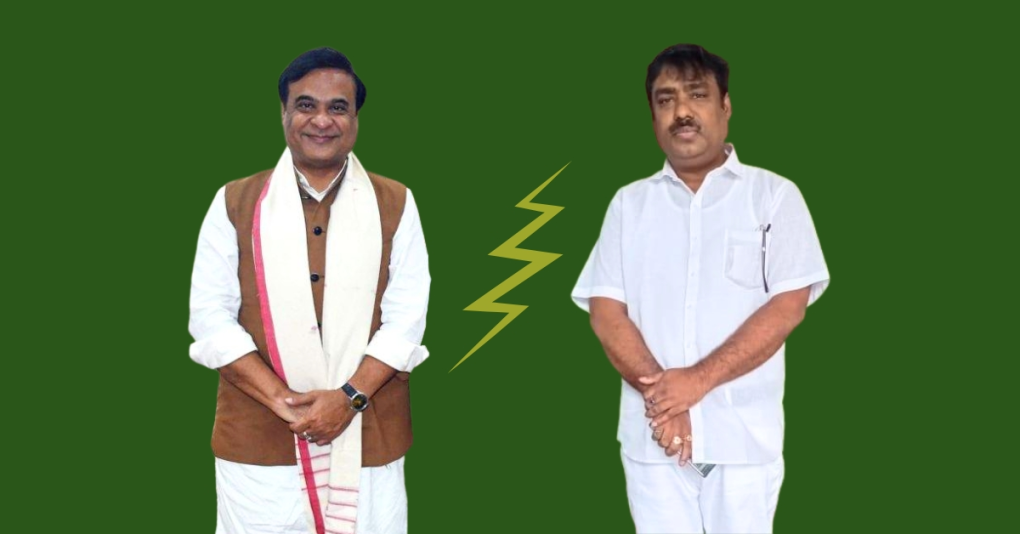In two sharply worded complaints to the Bihar Chief Electoral Officer and the Director General of Police, the Citizens for Justice and Peace (CJP) has called for urgent action against Assam Chief Minister Himanta Biswa Sarma and AIMIM candidate Tausif Alam for delivering speeches that, though emerging from opposite ends of the political spectrum, share a disturbing commonality — they both weaponise hate, fear, and violence during an ongoing democratic process.
Delivered within 24 hours of each other on November 4, 2025, these campaign speeches have been described by CJP as “a double assault on India’s constitutional morality and the sanctity of the electoral process.” One, by a sitting Chief Minister, communalises the campaign through religious vilification and genocidal language; the other, by a local candidate, turns political rivalry into a threat of physical mutilation.
The Siwan Rally: Himanta Biswa Sarma’s speech of hate and fear
At an election rally in Raghunathpur, Siwan, Assam Chief Minister Himanta Biswa Sarma compared RJD candidate Osama Shahab to global terrorist Osama bin Laden, telling the audience that they must “eliminate all Osama Bin Ladens” from Bihar. Sarma further warned that a victory for Shahab would be “a defeat for Hindus,” promising to watch the results from the Kamakhya temple in Assam and invoking figures like Babur and Aurangzeb to frame the election as a Hindu versus Muslim battle.
His remarks — equating a Muslim candidate with terrorism, describing Muslims as “infiltrators” who threaten women, and boasting of stopping salaries of “mullahs” — were deemed by the complaint to be “state-sponsored demonisation” and “an incitement to exterminatory politics.” Delivered by a Chief Minister under the Model Code of Conduct, they constitute, according to the complaint, “a direct assault on the secular fabric of the Constitution.”
CJP’s complaint lays out an exhaustive legal analysis: violations of Sections 123(2), 123(3), 123(3A), and 125 of the Representation of the People Act, 1951, and Sections 196, 297, and 356 of the Bharatiya Nyaya Sanhita, 2023. Through the complaint, it has been claimed that Sarma’s speech breaches the Ministerial Code of Conduct, since he holds constitutional office and bears heightened responsibility to maintain neutrality and restraint.
Describing the speech as “hate institutionalised as political strategy,” the complaint also notes that Sarma’s words collapse the constitutional boundary between religion and citizenship — constructing Muslims as infiltrators and enemies of the nation. CJP has demanded the registration of an FIR, Sarma’s debarment from further campaigning, and a public censure from the Election Commission.
The complaint may be read here.
The Kishanganj Rally: Tausif Alam’s threats of violence
On the same day, in Laucha Naya Haat, Kishanganj, AIMIM’s Tausif Alam took the campaign stage to retaliate against RJD leader Tejashwi Yadav, who had earlier called AIMIM chief Asaduddin Owaisi an “extremist.” In a shocking display of aggression, Alam told the crowd: “Tejashwi Yadav called our leader Owaisi an extremist. Tell him — I will cut his eyes, fingers, and tongue if he dares insult Owaisi Sahab again.”
He went further, mocking Tejashwi as the “son of a fodder thief,” an evident reference to his father, Lalu Prasad Yadav.
The complaint describes these remarks as “acts of open intimidation and violent abuse that degrade democratic discourse.” It cites violations of Sections 115, 326, 349, and 356 of the Bharatiya Nyaya Sanhita, along with Sections 123(2), 123(4), and 125 of the RPA, 1951, and multiple provisions of the Model Code of Conduct.
The complaint further emphasises that this is not political hyperbole but a “direct threat of grievous bodily harm” designed to intimidate a rival candidate and vitiate the atmosphere of free choice. CJP has called for an FIR against Alam, his temporary debarment from campaigning, and a public censure to reaffirm that threats of violence have no place in electoral politics.
The complaint may be read here.
A Pattern of Electoral Decay: Hate as common ground
Though ideologically opposite, the two speeches share a disturbing symmetry. Both substitute argument with aggression, civic discourse with communal or personal hostility. In Siwan, hate was religiously coded — against Muslims, invoking “infiltrators” and “Osamas.” In Kishanganj, hate was personally targeted — against a rival, invoking mutilation and humiliation.
CJP’s complaints thus expose a broader crisis: the normalisation of hate and violence in electioneering. Both incidents, as highlighted in the complaint, have the potential to trigger communal tension and retaliatory violence in Bihar’s politically sensitive districts. The Election Commission’s inaction, it argues, would erode not just the Model Code of Conduct but the very credibility of free and fair elections.
The complaints legal framing situates these speeches within the broader constitutional architecture of Articles 14, 15, 19, 21, and 25, and the Supreme Court’s jurisprudence in Abhiram Singh v. C.D. Commachen (2017) and Ziyauddin Bukhari v. Brijmohan Mehra (1975), which define religious appeals and hate speech as “corrupt practices” that vitiate elections.
A call for restoring democratic dignity
Together, these complaints articulate an urgent appeal — that India’s electoral arena must not be reduced to a theatre of hate, threat, or intimidation. When political speech turns into a weapon — whether through communal vilification or violent menace — it corrodes the very spirit of democratic civility and constitutional equality. Electoral politics draws its legitimacy from civility, equality, and reasoned dissent — not from the language of fear or vengeance. The complaint reminds the Election Commission and the public alike that elections are not merely contests for power but tests of the Republic’s moral fibre.
Related:
From ‘Tauba Tauba’ to ‘Expel the Ghuspaithiya’: The language of exclusion in Bihar’s election season
BJP leaders’ hate speech draws backlash ahead of Bihar elections
CJP urges YouTube to remove content targeting CJI Gavai from Ajeet Bharti’s channel

